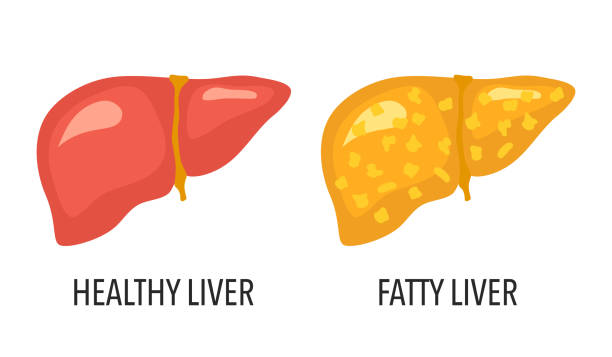Effects of Alcohol Addiction

“Alcohol can quietly turn from a social habit into a serious health and emotional problem,” says Dr. Prakhar Jain, a seasoned psychiatrist in Mumbai, India, known for his empathetic and evidence-based approach to mental health care.
With over 13 years of clinical experience, Dr. Jain emphasizes that alcohol addiction is not a weakness—it’s a medical condition that affects both the body and the mind. Recognizing its warning signs and understanding its harmful effects is the first step toward recovery.
Let’s take a closer look at the ill effects of alcohol addiction and how it impacts an individual’s overall well-being.
Let’s understand how alcohol can affect your body.
What are the Immediate and Long-Term Health Risks Associated with Alcohol Addiction?

Alcohol acts as a depressant, slowing down brain function and impairing coordination and judgment. The immediate health risks of alcohol addiction include:
- Slurred speech and poor balance
- Blurred vision
- Impaired memory and decision-making
- Increased risk of accidents and injuries
But the real danger lies in long-term alcohol consumption. Over time, alcohol addiction can severely damage internal organs, weaken the immune system, and increase the risk of chronic diseases such as:
- Hypertension and heart disease
- Liver cirrhosis
- Pancreatitis
- Increased cancer risk (especially of the mouth, throat, liver, and breast)
Excessive drinking also affects nutrient absorption, leading to vitamin deficiencies that further harm the brain and body. These health risks of alcohol addiction often develop silently, making early awareness crucial.
How Does Chronic Alcohol Consumption Impact the Liver, Heart, and Brain?
Liver

The liver is responsible for processing alcohol, but when consumption becomes chronic, it gets overworked. This leads to:
- Fatty liver – early, reversible stage
- Alcoholic hepatitis – inflammation of the liver
- Cirrhosis – irreversible scarring that can lead to liver failure
Once cirrhosis sets in, the damage is often permanent, and treatment becomes complex.
Heart
Excessive alcohol intake increases blood pressure and weakens heart muscles. It can cause cardiomyopathy, irregular heart rhythms, and even stroke. Moderate drinking may seem harmless, but sustained abuse puts immense stress on the cardiovascular system.
Brain
The brain is deeply affected by alcohol’s impact on organs. Chronic drinkers may experience:
- Memory loss and confusion
- Poor concentration
- Emotional instability
Over time, alcohol alters neurotransmitters, leading to dependence and mood disorders. This is why many people with alcohol addiction also experience anxiety and depression.
Struggling to control your drinking habits? Schedule a consultation with a qualified psychiatrist to receive expert guidance for long-term recovery.
Let’s explore the emotional and social toll alcohol addiction takes.
What are the Psychological and Social Consequences of Alcohol Dependency?

Alcohol doesn’t just damage physical health—it affects emotional stability and relationships too. The psychosocial effects of alcoholism can be devastating, including:
- Increased irritability and mood swings
- Poor work or academic performance
- Social withdrawal and isolation
- Relationship conflicts and domestic issues
- Financial instability due to impulsive spending
Mentally, alcohol dependency often leads to low self-esteem, guilt, and helplessness. It becomes a vicious cycle—stress leads to drinking, and drinking worsens stress.
This is where psychiatric help plays a critical role. A professional psychiatrist can identify the root psychological triggers behind addiction and help individuals regain control of their lives.
What Steps Can Individuals Take to Reduce or Eliminate Alcohol-Related Health Risks?

Here are the warning signs.
When to Seek Medical & Psychiatric Help
Seek help immediately if you or someone you know:
- Drinks daily or binge drinks frequently
- Experiences tremors, sweating, or anxiety when not drinking
- Neglects work, family, or health because of alcohol
- Needs increasing amounts of alcohol to feel relaxed
- Has tried to quit but relapsed multiple times
Alcohol addiction is a progressive condition—it worsens over time without intervention. Early consultation with a psychiatrist can prevent serious complications and help achieve lasting sobriety.
Notice signs of alcohol dependence? Do not wait for the condition to get worse—visit a psychiatrist for early evaluation and treatment.
Dr. Prakhar Jain’s Approach to Treating Alcohol Addiction

Dr. Prakhar Jain combines medical expertise with compassionate care to address both the physical and emotional aspects of addiction. His evidence-based treatment approach focuses on three key areas:
- Comprehensive assessment:
A detailed evaluation of the individual’s drinking history, medical background, and psychological factors to understand the root cause of addiction. - Personalized treatment plans:
Depending on the severity of dependence, treatment may include detoxification, medication management, psychotherapy, and family counseling. - Long-term support and relapse prevention:
Dr. Jain emphasizes lifestyle modification, continued therapy, and social support systems to sustain recovery and prevent relapse.
His patient-centered approach ensures that individuals don’t just stop drinking—they rebuild their confidence, relationships, and quality of life.
Conclusion
The ill effects of alcohol addiction extend far beyond the physical. They infiltrate one’s emotional health, social connections, and daily functioning. Yet, with timely intervention and expert psychiatric guidance, recovery is always within reach.
As Dr. Prakhar Jain, a reputed psychiatrist in Mumbai, India, often emphasizes— recovery from alcohol addiction is about reclaiming control over your life and nurturing both your mind and body.
Seeking help is not a weakness—it’s the first step towards strength and freedom. Book an appointment today
Reference
Still have questions? Let’s address them.
FAQs
- Is it possible that moderate drinking may cause alcohol addiction?
Yes. Frequent moderate drinking can slowly develop tolerance, and lead to dependency in due course of time.
- What are the most serious health risks of alcohol addiction?
Long-term addiction can cause liver cirrhosis, heart disease, brain damage, and various cancers. - Can therapy alone treat alcohol addiction?
Therapy plays a crucial role but often works best when combined with medical detox and lifestyle modification. - Is relapse common after quitting alcohol?
Yes, but relapse doesn’t mean failure. With ongoing psychiatric support, individuals can learn to manage triggers and maintain sobriety effectively.
Disclaimer: The information shared in this content is for educational purposes and not for promotional use.

MBBS, M.D. (PSYCHIATRY), PDF, EMH (USA)
Child & Neuro Psychiatrist.
Dr. Prakhar Jain is a Psychiatrist in Mumbai, and has an experience of 7 years in this field. Dr. Prakhar Jain practices at Sir JJ Hospital, Wadia Hospital & Royal Clinic in Mumbai. He completed MBBS from Indira Gandhi Government Medical College, Nagpur and M.D. (Psychiatry) from Grant Medical College and Sir JJ Hospital, Mumbai.
